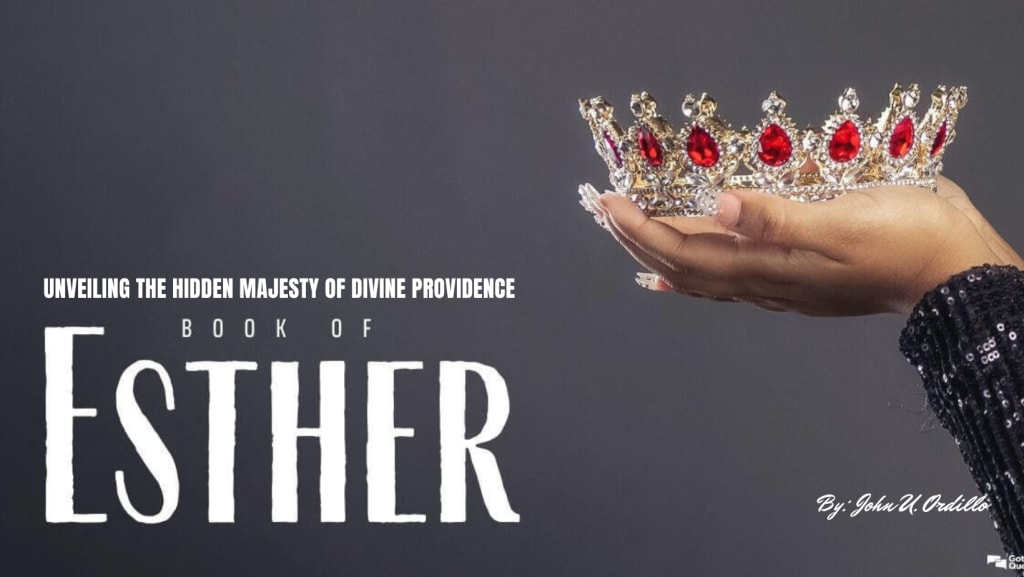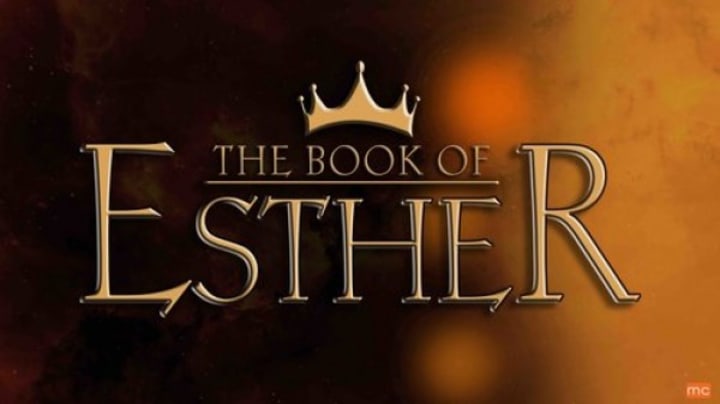THE BOOK OF ESTHER
Unveiling the Hidden Majesty of Divine Providence

Introduction:
The canonization of biblical texts has been a subject of debate throughout history, with some questioning the inclusion of certain books. Among these is the Book of Esther, which stands out due to its distinctive lack of explicit religious language. However, a closer examination of the book reveals its profound significance and provides a compelling challenge to those who doubt its rightful place within the canon. This writing aims to shed light on the enduring value of the Book of Esther, emphasizing its historical, literary, and moral dimensions.
Historical Context and Cultural Significance:
The Book of Esther offers a vivid depiction of the Jewish experience during the Persian Empire. It portrays the challenges faced by the Jewish people, who found themselves in a foreign land, struggling to preserve their religious identity amidst cultural assimilation. The narrative highlights the tension between loyalty to one's heritage and the pressures to conform. By including Esther in the canon, it provides a valuable historical record and insight into the complexities of Jewish life in ancient times.
Themes of Courage and Faithfulness:
One of the prominent themes in the Book of Esther is the portrayal of courage and faithfulness in the face of adversity. Esther, a Jewish woman, emerges as the central protagonist who risks her own safety by revealing her identity and advocating for her people. Her unwavering dedication to her heritage, coupled with her willingness to take action, serves as a timeless model of courage and moral fortitude. The book thus offers a powerful lesson on the importance of standing up for what is right, even in challenging circumstances.
Divine Providence and Hidden Miracles:
While the Book of Esther does not explicitly mention the name of God or employ religious language, it subtly conveys the concept of divine providence and hidden miracles. The story unfolds with a series of seemingly coincidental events that eventually lead to the salvation of the Jewish people. It emphasizes that even when God's presence is not explicitly acknowledged, divine intervention can be discerned in the intricate workings of human affairs. The absence of direct religious language in Esther thus serves as a reminder that God's providence can be perceived in unexpected and subtle ways.
Moral Teachings and Ethical Lessons:
Beyond its historical and cultural value, the Book of Esther imparts profound moral and ethical teachings. It exposes the perils of unchecked power, as demonstrated by the antagonist Haman, who represents hubris and moral corruption. The book calls for self-reflection and highlights the consequences of prejudice, injustice, and hatred. Additionally, it emphasizes the importance of unity and communal responsibility, as the Jewish people unite in prayer, fasting, and support for one another. The ethical lessons embedded within Esther resonate throughout time, providing guidance for individuals and communities facing similar challenges.
Influence on Jewish Thought and Practice:
The enduring influence of the Book of Esther on Jewish thought and practice further solidifies its place within the canon. The annual commemoration of Purim, based on the events described in Esther, has been observed by Jews for centuries. Purim celebrates the deliverance of the Jewish people, serving as a testament to the continued relevance and impact of the book. Its inclusion in the canon has fostered reflection, interpretation, and engagement among Jewish communities, further reinforcing its significance.

Conclusion:
The Book of Esther, despite its lack of explicitly religious language, stands as a testament to the divine tapestry woven throughout human history. Its historical, cultural, and moral dimensions, combined with its enduring influence on Jewish thought and practice, provide a robust defense for its canonization. The hidden majesty of divine providence, the embodiment of courage and faithfulness, and the ethical lessons it imparts all contribute to its enduring relevance. Therefore, the Book of Esther challenges those who doubt its rightful place in the canon, inviting readers to embrace its unique narrative and appreciate the multifaceted nature of sacred texts.
Written by: John U. Ordillo
About the Creator
JOHN U. ORDILLO
M.A. in Pastoral Administration Asian Seminary of Christian Ministries
Former Jr. Planner/Design Engineer Norconsult Telematics Saudi Arabia
Former Outside Plant Engineer Saudi Engineering Group International






Comments
There are no comments for this story
Be the first to respond and start the conversation.